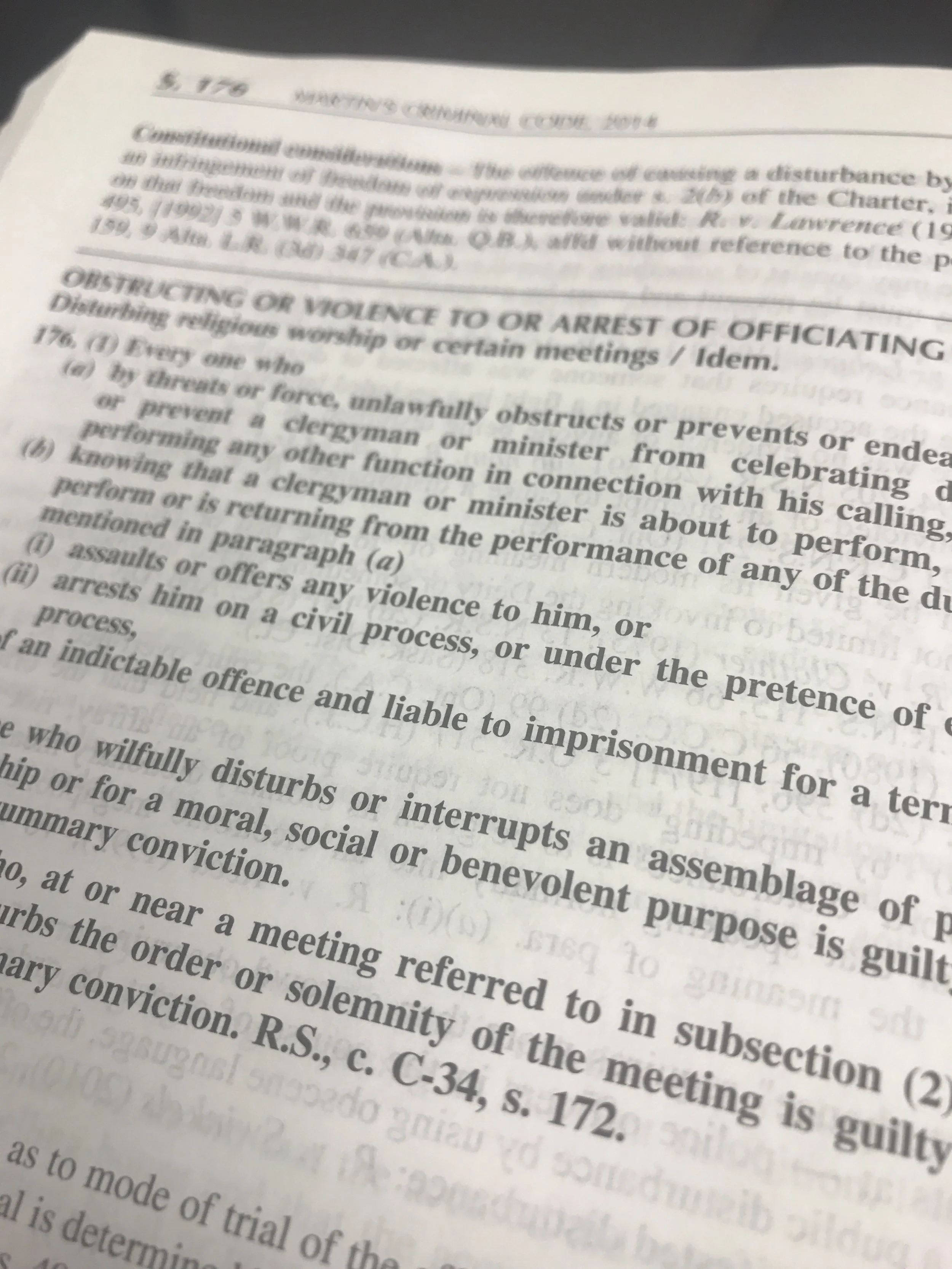Joint statement from Christian Legal Fellowship, The Evangelical Fellowship of Canada, Rabbinical Council of America, Canadian Council of Christian Charities, The Catholic Women’s League of Canada, Canadian Council of Imams, and The Canadian Conference of Catholic Bishops.
Quaecumque vera: A Report from the 2018 CLF National Student Conference
Ontario upholds 'effective referrals' despite religious freedom infringement
The Canada Summer Jobs program
"Some may wonder what the 'kerfuffle' is about, and assert that, in 2018, it is not unreasonable to expect Canadians to get in line with contemporary values. That may be satisfactory as long as one’s ideological allies form the government of the day. But what happens when a new government articulates a contrary set of 'values'?"
"Charter rights are not competitors in a zero-sum game”
Charter rights are not competitors in a zero sum game. They can be fully exercised in co-existence, as this Court recognized in 2001. And since that time, both equality rights and religious freedom have enjoyed expanding interpretations: in tandem, not competition. In the very context of expanding equality rights on the grounds of sexual orientation, religious freedom has been strongly affirmed
A Law Student's Report on the Trinity Western SCC Appeals
Manitoba passes legislation protecting conscience in health care
On November 10, 2017, the Government of Manitoba passed The Medical Assistance in Dying (Protection for Health Professionals and Others) Act. The legislation specifically protects the rights of those who refuse to aid in the provision of medical assistance in dying on the basis of his or her personal convictions.
Court of Appeal rules on religious accomodation in Ontario schools
Justice Committee retains Criminal Code protections for religious expression and association
Protecting fundamental freedoms should never be seen as “obsolete”
Praying for the Church
“International law jealously guards religious autonomy”: CLF at the Supreme Court of Canada
"The right to autonomy of religious communities is a fundamental principle recognized in international law. Canada has agreed to uphold this principle in its international commitments. The present case demonstrates a need and presents an opportunity to expressly affirm religious autonomy in Canadian jurisprudence."
SUPREME COURT OF CANADA CLARIFIES SCOPE OF RELIGIOUS FREEDOM
Yesterday, the Supreme Court of Canada reaffirmed that government actors have a duty to specifically consider religious freedom concerns when raised by claimants in its Ktunaxa Nation v. British Columbia decision. This historic case – the first Indigenous religious freedom claim to be heard by the Supreme Court - raised questions about the scope of religious freedom, and the means by which religious communities can practise and manifest their faith. Christian Legal Fellowship (CLF) and The Evangelical Fellowship of Canada (EFC) jointly intervened in the case.
CLF urges Parliament to retain Criminal Code protections for religious expression and association
"[C]itizens must be free to meet, worship, and collectively express themselves without fear of being silenced by reprisal or intimidation. Canada’s historical reality regarding the oppression of religious and other minority groups – some of which has been effectively prosecuted under section 176 – must not be forgotten. The Supreme Court of Canada’s recognition that section 176 protects the public interest remains a salient one. The inclusion of section 176 in the Criminal Code demonstrates Canada’s ongoing societal commitment to protect the fundamental freedoms of religious expression and association."









